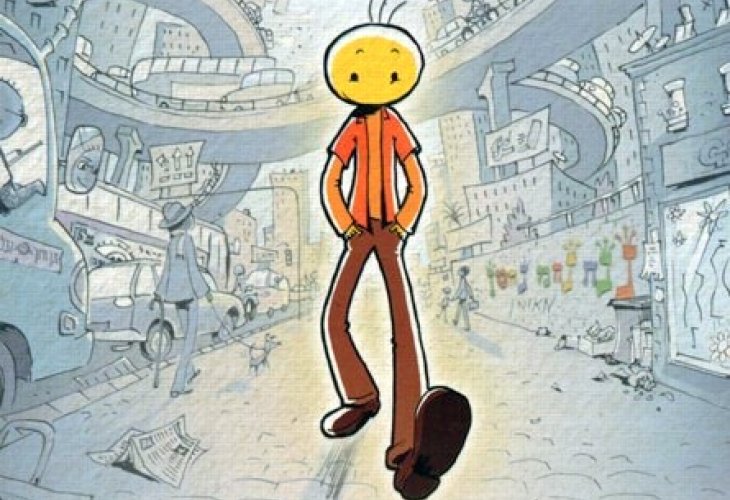Jewish Law
The Secret of the Good Point: Rabbi Nachman’s Path to Finding Light Within Darkness
Why life’s struggles exist to awaken free choice, and how embracing your inner light transforms pain into spiritual growth

Rabbi Nachman reveals that deep down, we are all good — and even when others act in ways that seem bad, their inner essence is still good.
It seems so straightforward, and yet, the world around us is filled with suffering, cruelty, and pain. People act with anger, even violence. If everyone is “good inside,” why is there so much darkness in the world?
Why Is Goodness So Hard to See?
If everything is truly good at its core, one might ask: “If the world is so full of goodness, why does everything look so bad? And if it’s supposedly natural to find the good — why does it feel so hard?”
Because it isn’t natural. It’s true, but it’s not automatic. Our inner truth is good — but our outer, mechanical nature pulls in the opposite direction. The natural flow of life pulls us downward, not upward. We are drawn toward comfort, toward the easy path. The divine plan, however, requires us to choose to rise, to spread our wings and fly — not out of instinct, but out of conscious choice and responsibility.
The Struggle to Connect
Even when I first began my spiritual journey — learning Likutei Moharan, Rabbi Nachman’s collected teachings, I didn’t really “get it.” My friends talked about Azamra (“I will sing,” Rabbi Nachman’s teaching about finding the good point in everything), and it sounded obvious. “What’s the big deal?” I thought. “Just see the good.”
I felt “fine” overall. Sure, if you’d asked me about specific areas of my life, I’d admit some things weren’t perfect, but I didn’t dig deeper. I tried to “see the good” in general, without facing the pain and stuckness that hid beneath the surface. I avoided it, distracted myself, and called it “positivity.”
Years later, through hitbodedut (personal prayer and self-reflection), I began facing those inner walls — the daily frustration, the sense of being stuck. And only then did I understand what Azamra really means. Without the ability to find even a tiny spark of good, I was lost. The deeper you go inside, the more darkness you face — and the more essential it becomes to find hope and balance in that darkness.
The Divine Design: Light and Shadow
The verse says, “God made one opposite the other” (Kohelet 7:14).
If great good exists in a certain area, so too must there be a mirror image of potential evil. The higher the possible good, the deeper the potential fall.
Rabbi Natan (Rabbi Nachman’s main student) quotes his teacher: “Everything you see in this world exists only for the sake of choice. For the entire world was created for the purpose of free will.” (Chayei Moharan, 519)
Every test, every rise and fall, exists for one reason: to allow free choice — to let us navigate the infinite field of possibilities and decide which direction our lives will take.
Freedom to Choose the Good
Rabbi Moshe Chaim Luzzatto (the Ramchal), in Derech Hashem (“The Way of God”), explains: “Man must achieve perfection through his own free choice. For if he were compelled to choose good, that perfection would not truly be his own, but would belong to the One who forced it upon him.”
If the good were so obvious that no one could resist it — there would be no merit, no meaning in choosing it. True goodness requires freedom, and freedom requires the existence of its opposite.
The Layers of the Soul
We were created with pure points of light — deep goodness and divine will. But around that inner core, God placed layers of concealment — protective shells, fears, illusions. These coverings allow for free choice, giving us the option to move away from goodness — so that our return to it will be truly ours.
You can picture it like ascending a downward escalator. If you stand still, you’ll be carried down. Only through effort, persistence, and awareness can you rise upward toward your true self.
The Inner Battle
The Chazon Ish wrote in Emunah u’Bitachon that all negative traits can be traced to one core flaw: “Abandoning life to its natural course.”
Meaning, the tendency to drift, to stop striving, and to identify with negativity. This is the natural current of human life — to sink into passivity, fear, and judgment, which mirrors the story of the Tree of Knowledge, where humanity first mixed good and evil together.
Returning to the Good
To reconnect with our divine essence, we must look directly at our inner noise — the doubts, fears, and self-critical voices, and pass through them, not around them.
Beyond those layers lies the truth: You are good. You are inherently valuable. The “bad” you feel is only an outer shell — dust from the road that must be shaken off.
When you understand this, life becomes a journey of rediscovery — to find the good within yourself and in others, and to bring more light into the world.

